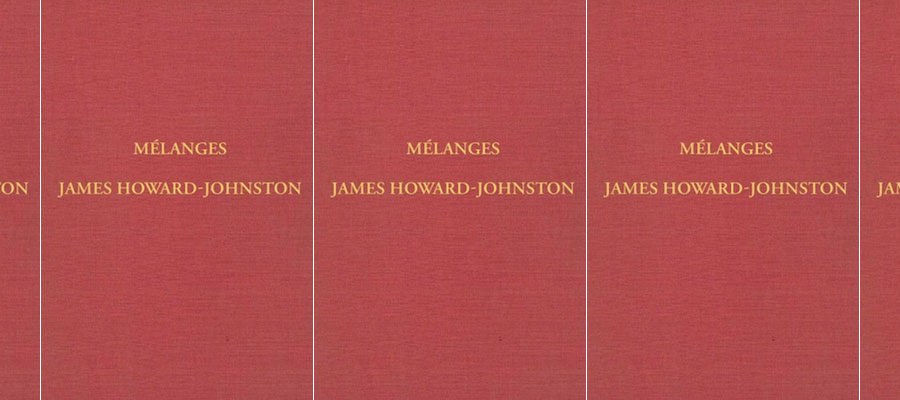Phil Booth and Mary Whitby, eds. Mélanges: James Howard-Johnston. Travaux et mémoires 26. Association des Amis du centre d’histoire et civilisation de Byzance, 2022.
From Association des Amis du centre d’histoire et civilisation de Byzance
Apart from a brief stint as a Junior Fellow at Dumbarton Oaks, Washington, in 1968-9, James Howard-Johnston spent his entire academic career at Oxford University. After a period as Junior Research Lecturer at Christ Church from 1966-71, he was then University Lecturer in Byzantine Studies and a Fellow of Corpus Christi College until his retirement almost forty years later in 2009. In the mid-2000s he served briefly as interim president of Corpus. From 1972 to 1987 he was also passionately involved in local politics, serving as an Oxford City Councillor and Oxfordshire County Councillor. His retirement from politics was accompanied by a stream of publications that has continued to the present day.
Throughout his career, James cultivated a number of interests, for example, the political and military history of Byzantium, the Eurasian steppe, and the Sassanid empire; Byzantine historiography; medieval law and commerce; and, perhaps most importantly, the history of warfare, and in particular the “world crisis” that dramatically and permanently reorganized the Middle East during the seventh century. Readers of James’s bibliography through 2022, which we include at the beginning of this volume, will perceive the simultaneous cultivation of all these interests, but also a growing preoccupation with the seventh century, which intensified from the 1990s onward and culminated in two masterpieces of scholarship produced during his retirement-or, as James would put it in his typical self-deprecating style, his “defuncation.” The first, Witnesses to a world crisis, represents the distillation of many years of deep reflection on the various sources of seventh-century political history, as well as a profound reflection on the rise of Islam and the Arab conquests. The second (of which Witnesses is in many ways the prequel), The Last Great War of Antiquity, is now the first comprehensive history of the final conflict between the Roman and Iranian empires, a great subject of which James has long been the acknowledged master.
